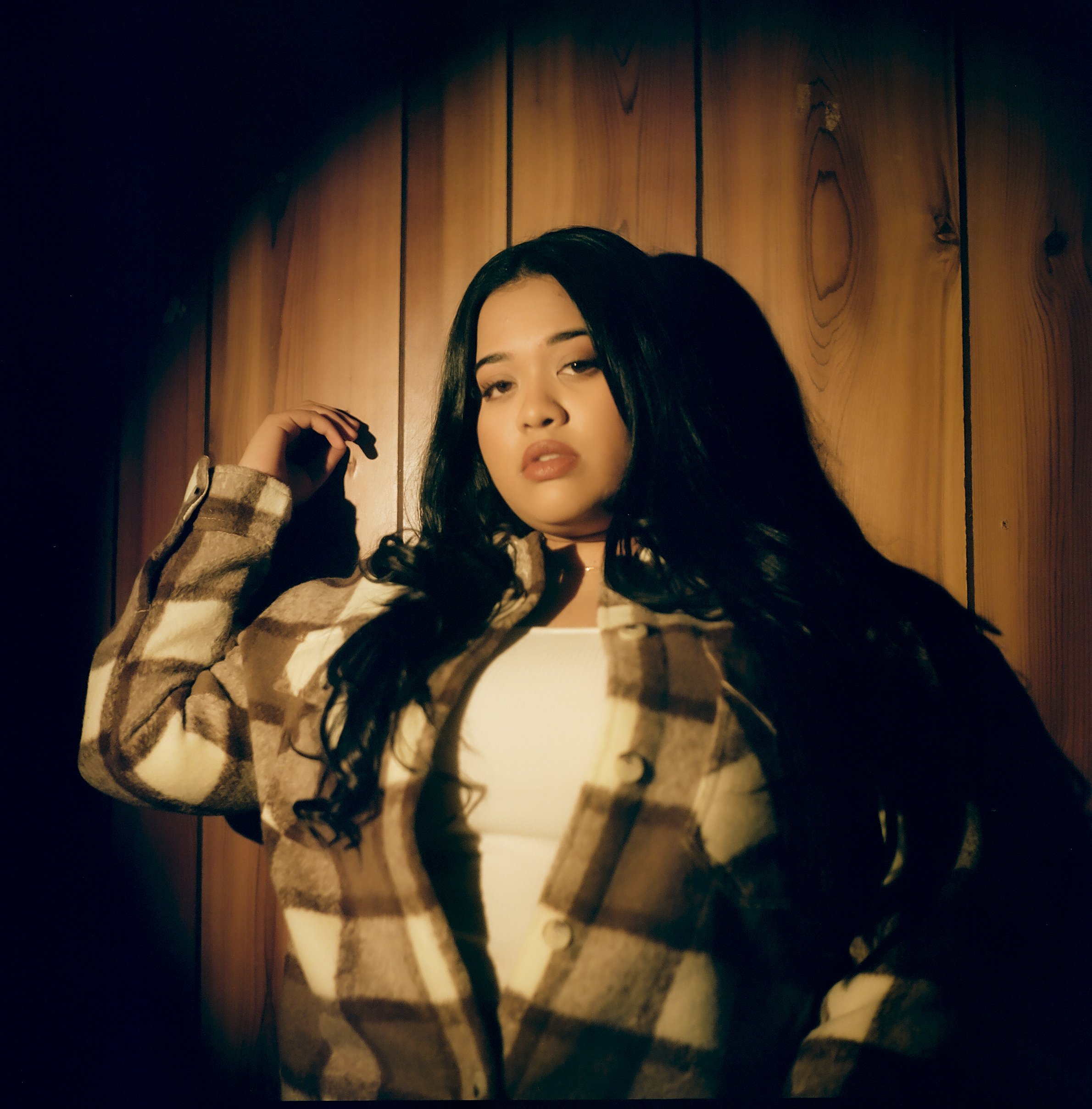by emma schoors
photo by biata shem-tov
wilt has solidified their lineup and set their signature sound in motion with the release of their deceivingly summery new single, “moved along.” “It’s one of those happy-sad songs,” lead singer Chelsea Rifkin explains. “Upbeat and catchy, but when you dive into the lyrics, it’s a pretty devastating outlook on a toxic relationship.”
Last time we spoke with the Los Angeles-based band, they were on the hunt for a bassist to complete their quintet. Enter Jake Shpiner, five-string fretless bassist in shining armor. “He has some next level chops and a crazy good ear, but we force him to play these super easy parts,” guitarist Aaron Liebman jokes. “Jake has a heart of gold though, and makes all our jobs way easier. [...] As far as a full band dynamic, It feels great to just trust and know he’s gonna nail the parts. He’s also goofy as hell with his insane belly laugh, and is down to participate in our cringey videos.” Multiple clips of the bassist have made the rounds on TikTok, further cementing his standing in the viral-inclined group. “Jake is definitely canon in the wilt universe now,” Liebman says. “The fans have definitely taken a liking to him, including our meme page, @mentalwiltness, who successfully clowned him.”
The way a band’s rhythm section interlocks is key to its long-term health, and drummer Dan Bermudez has found a stellar counterpart in Shpiner. “It feels great to have such a killer rhythm section partner that I can really truly trust on stage and in the studio. Not to mention he’s an absolute sweetheart,” Bermudez says. “Being a drummer, my place in the overall band sound is pretty closely tied to the bass, and it’s nice really being able to dig into the songs with a true bassist. He’s always got a good attitude and a smile on his face that I think helps ground us in a lot of ways.” Bermudez adds that Shpiner’s joining adds another distinct perspective to the band, strengthening the variety of their musical backgrounds.
“moved along” is their first release since Shpiner joined the band, but it’s been in the wilt ether for a hot minute. Rifkin wrote the track while learning guitar a few years ago, and it was subsequently the first song the band started working on together last year. “For a long time I didn’t want it to see the light of day because of the more alt-country direction it was headed in,” Rifkin shares. “Luckily Aaron and Andrew are production geniuses and ended up turning the song into its own genre.” The track sees wilt turn towards the distorted charm of their 90’s influences: “We pitched the whole thing down in between keys so it’s slightly unpleasant to hear, and really grunged it all up,” Rifkin says. While the song is a nod to newer artists like Best Coast, it keeps one eye deadset on their distinctive, self-made sound, curated by producers Liebman and Andrew Perrea. “The last chorus is my favorite part,” Rifkin says. “It’s so fun to jump along to and scream. I think it’s a great example of what our defining sound will be.”
Lyrically, “moved along” is wilt at its most exposed. Rifkin traverses through retrospective lines: “You wouldn’t stop talking about some girl you screwed over, and how she was crazy, and how you were scared,” she sings. “I can’t help but to think about how that’s probably the way you talk about me now.” Rifkin rises to the higher end of her range through the chorus, a parallel to the swell of emotions she describes. “Chelsea was completely in the zone when we tracked [the vocals],” Liebman says. “She did all the harmonies and vocal arrangements on the fly. [...] When we recorded vocals I made the tough decision to use a cheap microphone on her voice, in the hopes of making it sound older and more vintage. It was definitely a gut check to not use my nice mic, but I’m so glad we didn’t.”
The spontaneity of “moved along” in the recording process was crucial to its “kind of sloppy and garagey” end result, as per Bermudez. “We were obsessed with the demo. We actually tried to re-record the guitars to make it more ‘hi-fi’ like ‘gwen’ and ‘nothing special,’ but it felt like trying to shove a square peg in a round hole,” Liebman says, describing his pre-wilt demo production of the song as “corny as hell.” Once Liebman digitally pitched the song down a step, things fell into place. “Boom, it just oozed vibe,” he says. “So the demo vocals, guitar, and bass are all in the final version of the song.” As a band currently free of industry persuasion or input in the studio, they’ve let loose and begun exploring the range of auditory options at their fingertips. “It sounds more like you’re in the room with the drums than any of our other tunes,” Bermudez says. When asked if any of the members have surprising interests or music preferences, Shpiner keeps with his reputation as their quick-witted bassist: “Dan and I were in rival high school jazz bands without knowing each other, so now the goal is to just turn wilt into a fusion quintet.” Liebman points to surfing as one of his hobbies, but shares that “wilt consumes basically [his] entire life these days,” and Bermudez takes us through his typical day: teaching music, playing with his bands, spending time with his girlfriend and two cats… and cooking a good soup! Rock bands, take note: always good to throw a bit of domesticity in the mix.
wilt’s first official shows this year brought them to two intimate Los Angeles venues: The Bardot and El Cid. Besides the pressure attached to captivating an audience, their social media success preceded their live debut, so fans weren’t all they needed to win over — a room full of professionals were waiting, too. “School Night at The Bardot was particularly nerve wracking because a lot of industry folks that we were flirting with were in the audience,” Liebman shares. “Luckily we had just played a house show three days before, so we were super prepared.” Understandably, the idea of one performance changing your career’s trajectory has inspired equal parts excitement and anxiety within the band. “I’ve performed on many stages, but with wilt (especially at The Bardot), there was a bit of pressure to really kill,” Bermudez says. “The upbeat and fun vibe of a lot of the songs kind of balances out the feeling of pressure. In the end, we’re just a bunch of friends playing songs we wrote together, and I think our performances really showcased that.” Rifkin’s onstage comfort as lead singer has developed flawlessly over the last few months, partially thanks to her theater roots. “The Bardot show almost felt like a full-circle moment, and I’m hoping that we’ll have a lot more of those,” she says. “Being on stage singing songs that I wrote that are truly heartfelt and personal to me was extremely freeing, and I can’t wait to do more of it.” Artists the band would like to tour or collaborate with are Alex G (“The dude is so elusive,” Liebman says), Clairo, Turnstile, and Wallows. “I think our sound compliments all three without being too similar,” Rifkin says. “Perfect for an opening act.”
If you’re looking to sport a wilt shirt or tote bag, their brand new merchandise shop is open now. “Evan Dykes did both designs, and he absolutely crushed it,” Liebman says. “He was a friend of mine that I had lost touch with over the years. I decided to reach out to him on a whim and I’m super glad I did. We basically told him we want a design that you could get a stick and poke of,” he says, fueling my suspicion that the first wilt tattoos are just around the corner. “The wilters really love them. I’m excited to see how everyone is styling them because my style is trash, and I’m taking notes.”
The question on everybody’s minds is when wilt will release their first full body of work, whether that be an EP or LP. Rest assured, the band is practically always in the studio. “We are fast at work on an EP that we hope to put out mid summer,” Liebman says. “While there’s always a lot of excitement that comes with new releases, our first song ‘gwen’ is still the heavy lifter on our Spotify. It just passed 500K streams,” he says, adding that their third single, “puberty,” is a favorite within the band. “I personally think [puberty] deserves more attention and is in its hidden gem era.” Bermudez teases of the EP: “Definitely worth the wait til summertime.”






